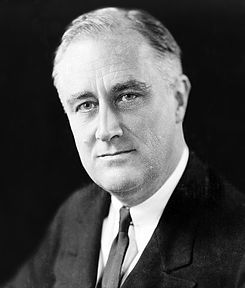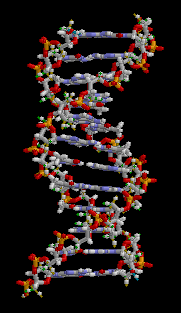This is your morning Open Thread. Pour your favorite beverage and review the past and comment on the future.
Find the past “On This Day in History” here.
March 8 is the 67th day of the year (68th in leap years) in the Gregorian calendar. There are 298 days remaining until the end of the year.
On this day in 1911, International Women’s Day is launched in Copenhagen, Denmark, by Clara Zetkin, leader of the Women’s Office for the Social Democratic Party in Germany.
International Women’s Day (IWD), originally called International Working Women’s Day is marked on the 8th of March every year. It is a major day of global celebration of women. In different regions the focus of the celebrations ranges from general celebration of respect, appreciation and love towards women to a celebration for women’s economic, political and social achievements.
Started as a Socialist political event, the holiday blended in the culture of many countries, primarily Eastern Europe, Russia, and the former Soviet bloc. In many regions, the day lost its political flavour, and became simply an occasion for men to express their love for women in a way somewhat similar to a mixture of Mother’s Day and St Valentine’s Day. In other regions, however, the original political and human rights theme designated by the United Nations runs strong, and political and social awareness of the struggles of women worldwide are brought out and examined in a hopeful manner.
The first IWD was observed on 19 March 1911 in Germany following a declaration by the Socialist Party of America. The idea of having an international women’s day was first put forward at the turn of the 20th century amid rapid world industrialization and economic expansion that led to protests over working conditions.
In 1910, Second International held the first international women’s conference in Copenhagen (in the labour-movement building located at Jagtvej 69, which until recently housed Ungdomshuset). An ‘International Women’s Day’ was established. It was suggested by the important German Socialist Clara Zetkin, although no date was specified. The following year, 1911, IWD was marked by over a million people in Austria, Denmark, Germany and Switzerland, on March 19. In the West, International Women’s Day was first observed as a popular event after 1977 when the united Nations General Assembly invited member states to proclaim March 8 as the UN Day for Women’s Rights and International Peace.
Demonstrations marking International Women’s Day in Russia proved to be the first stage of the Russian Revolution of 1917.
Following the October Revolution, the Bolshevik Alexandra Kollontai persuaded Lenin to make it an official holiday in the Soviet Union, and it was established, but was a working day until 1965. On May 8, 1965 by the decree of the USSR Presidium of the Supreme Soviet International Women’s Day was declared a non working day in the USSR “in commemoration of the outstanding merits of Soviet women in communistic construction, in the defense of their Fatherland during the Great Patriotic War, in their heroism and selflessness at the front and in the rear, and also marking the great contribution of women to strengthening friendship between peoples, and the struggle for peace. But still, women’s day must be celebrated as are other holidays.”
2012 International Women’s Day
The UN theme for International Women’s Day 2012 is Empower Women – End Hunger and Poverty. In many countries, International Women’s Day is an occasion to honor and praise women for their accomplishments. In 2012, Oxfam America is inviting people to celebrate inspiring women in their lives by sending a free International Women’s Day e-Card or honoring a woman whose efforts make a difference in the fight against hunger and poverty with Oxfam’s International Women’s Day award.
On the occasion of International Women’s Day 2012, the ICRC is calling for more action to help the mothers and wives of people who have gone missing during armed conflict. The vast majority of people who go missing in connection with conflict are men. As well as the anguish of not knowing what has happened to the missing person, many of these women face economic and practical difficulties. The ICRC underlines the duty of parties to a conflict to search for the missing and provide information for the families.

 On this day in 1976, a group of 600 civil rights marchers are forcefully broken up in Selma, Alabama. This day would be remembered in the Civil Rights Movement as
On this day in 1976, a group of 600 civil rights marchers are forcefully broken up in Selma, Alabama. This day would be remembered in the Civil Rights Movement as  Bevel’s initial plan was to march to Montgomery to ask Governor
Bevel’s initial plan was to march to Montgomery to ask Governor 


 In this day in 1933, at the height of the Great Depression,
In this day in 1933, at the height of the Great Depression,  On this day in 1887,
On this day in 1887,  On this day in 1836, the
On this day in 1836, the  The Republic of Texas was created from part of the Mexican state
The Republic of Texas was created from part of the Mexican state  On this day in 1961, President John F. Kennedy issues Executive Order #10924,
On this day in 1961, President John F. Kennedy issues Executive Order #10924,  The
The  On this day in 1940,
On this day in 1940,  DNA was first isolated by the Swiss physician
DNA was first isolated by the Swiss physician  On this day in 1827,
On this day in 1827, 

 In 1897 acting Yellowstone superintendent Colonel S.B.M. Young proposed expanding that park’s borders south to encompass the northern extent of Jackson Hole in order to protect migrating herds of elk. Next year,
In 1897 acting Yellowstone superintendent Colonel S.B.M. Young proposed expanding that park’s borders south to encompass the northern extent of Jackson Hole in order to protect migrating herds of elk. Next year,  In 1928, a Coordinating Commission on National Parks and Forests met with valley residents and reached an agreement for the establishment of a park. Wyoming Senator
In 1928, a Coordinating Commission on National Parks and Forests met with valley residents and reached an agreement for the establishment of a park. Wyoming Senator